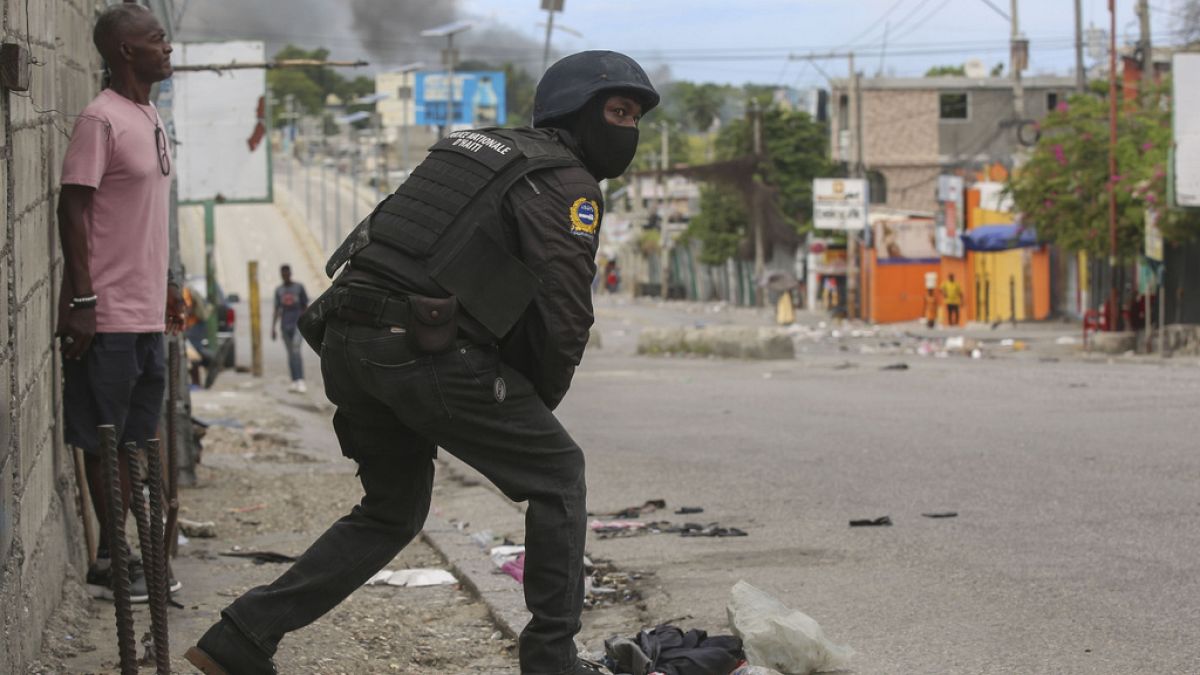In Haiti’s capital, Port-au-Prince, tensions reached a boiling point as shootouts between police and gangs erupted on the same day that Alix Didier Fils-Aimé was poised to take over as interim prime minister, replacing Garry Conille. The scenes of heavily armed police and civilians fleeing gunfire, while gangs attempted to seize control of the main airport, underscored the grave security challenges facing the nation. This violence comes against the backdrop of a prolonged democratic crisis in Haiti, marked by political infighting and escalating gang violence, which has hindered efforts to restore stability and security to the country.
The appointment of Fils-Aimé as interim prime minister by the transitional council highlights the challenges facing Haiti as it grapples with political instability and security threats. Fils-Aimé, a businessman and former president of the Chamber of Commerce, has been tasked with steering the country through these turbulent times and restoring order. However, his appointment comes at a critical juncture in Haiti’s history, with the nation facing a myriad of challenges, from economic woes to political unrest.
The surge in violence in Port-au-Prince has further exacerbated the already dire situation in Haiti, raising concerns about the safety and security of the population. The scenes of chaos and mayhem, with armed gangs vying for control and police forces struggling to maintain order, underscore the urgent need for decisive action to address the root causes of the violence. Efforts to mediate and resolve the crisis, including interventions by regional organizations such as the Organisation of American States, have so far yielded limited results, leaving Haiti in a state of uncertainty and unrest.
As Haiti grapples with the aftermath of the recent violence in its capital, the incoming interim prime minister, Alix Didier Fils-Aimé, faces the daunting task of restoring stability and security to the nation. With a background in business and commerce, Fils-Aimé brings a unique perspective to the role, but he will need to navigate the complex political landscape and address the underlying issues fueling the violence. The coming days and weeks will be critical for Haiti as it seeks to chart a path forward and address the pressing challenges facing the country.
The violence in Port-au-Prince serves as a stark reminder of the fragility of Haiti’s democracy and the urgency of finding sustainable solutions to its political and security challenges. The nation has a long history of political instability and violence, which has hindered its development and undermined the wellbeing of its people. As Haiti works to overcome these challenges and build a more peaceful and prosperous future, the international community must stand in solidarity with the Haitian people and support efforts to address the root causes of the crisis.
In the midst of the ongoing turmoil in Haiti, the appointment of Alix Didier Fils-Aimé as interim prime minister represents a glimmer of hope for a nation grappling with deep-seated challenges. Fils-Aimé’s leadership will be put to the test as he seeks to navigate the turbulent waters of Haitian politics and address the pressing security concerns facing the nation. With the support of the international community and the resilience of the Haitian people, there is hope that Haiti can overcome its current crisis and build a more stable and prosperous future for all.










